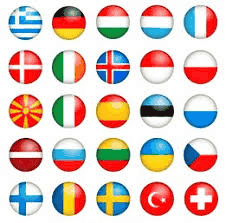Nationalities and languages in French
French lesson 1 of vocabulary: nationalities and languages in French

The lexicon (vocabulary) of nationalities and languages is very important in French. Indeed, it is widely used by Francophones. At the beginner level, this is one of the first things to learn and master. The vocabulary of nationalities and languages will allow you to introduce yourself and someone else. In the beginning, it will be very useful for you to have a basic conversation, especially with a person you are meeting for the first time. The video below will teach you the vocabulary of nationalities and languages in French:
Nationalities are masculine or feminine. For example, in the masculine, we say “français”, “allemand”, “anglais”, espagnol”, etc. In the feminine, we add an “e”: “française”, “allemande”, “anglaise”, espagnole”, etc.
Masculine | Feminine |
|---|---|
| français | française |
| allemand | allemande |
| anglais | anglaise |
| espagnol | espagnole |
| chinois | chinoise |
| japonais | japonaise |
| américain | américaine |
| mexicain | mexicaine |
| sénégalais | sénégalaise |
| congolais | congolaise |
For nationalities that end with “en”, in the feminine, we will add “ne”: “vietnamien”, “vietnamienne”, “canadien”, “canadienne”, brésilien”, brésilienne”, etc.
Masculine | Feminine |
|---|---|
| vietnamien | vietnamienne |
| canadien | canadienne |
| brésilien | brésilienne |
| coréen | coréenne |
| péruvien | péruvienne |
| australien | australienne |
Nationalities ending with an “e” are the same for both masculine and feminine. for example: “russe”, “belge”, suisse”, etc.
Masculine | Feminine |
|---|---|
| russe | russe |
| belge | belge |
| suisse | suisse |
Some nationalities like “turc” ou “grec” change to feminine: “turque”, “grecque”, etc.
Masculine | Feminine |
|---|---|
| turc | turque |
| grec | grecque |
For example, to express your nationality, if you are a man (masculin), you can say: “Je suis américain.” If you are a woman (feminine) you can say: “Je suis américaine.” Here, “américain” or “américaine” are given as an example. Obviously, these words must be replaced by your nationality.
For languages, masculin nationality is used. for example: “Je parle français.”, “Elle parle vietnamien.”, “Elles parlent grec.”, etc.
For example, to express the languages you speak, you can say: “Je parle anglais et français.” Here, “anglais” and “français” are given as an example. Obviously, you have to replace them with the languages you speak.
For example, to introduce someone, if that person is a man (masculine), you can say: “Il est américain. Il parle anglais et français.” If that person is a woman (feminine), you can say: “Elle est américaine. Elle parle anglais et français.” Again, this is an example to replace with the nationality and languages spoken of the person you are introducing.
To deepen this French vocabulary lesson on nationalities and languages, you can study the French course: learn to introduce yourself and the French course: learn to introduce someone.
Once you have successfully mastered this vocabulary lesson about nationalities and languages in French, you can proceed to the next lexicon lesson:
French vocabulary lesson 2: French numbers from 0 to 20
You can find other French vocabulary lessons by clicking here. You can also perfect your learning of the French language thanks to our
We regularly publish new content to learn French. To be kept informed of new publications, subscribe to the Youtube channel Flemotion : apprendre le français (video 100% in French but still useful for English speakers to learn French) and to the Youtube channel Learn French with Flemotion (videos with explanations in English) and to the Facebook page Flemotion : apprendre le français.